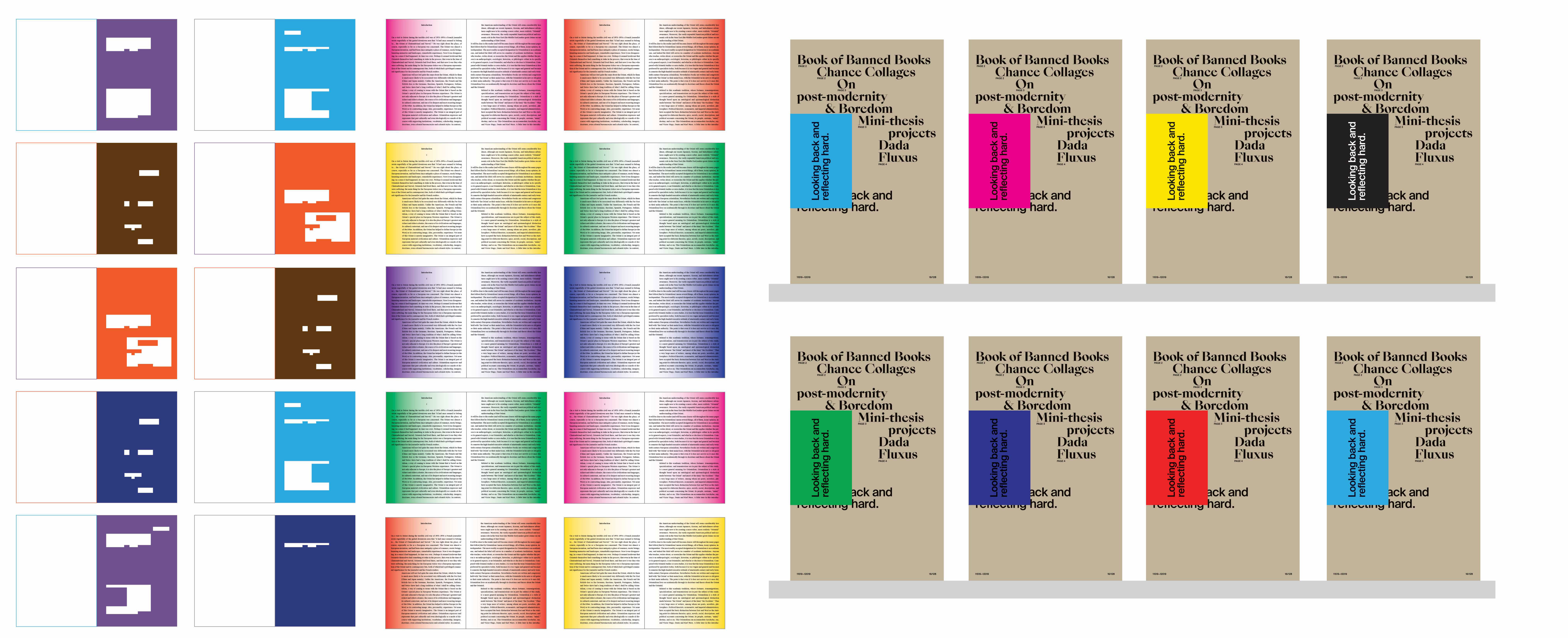‘The Third Space’
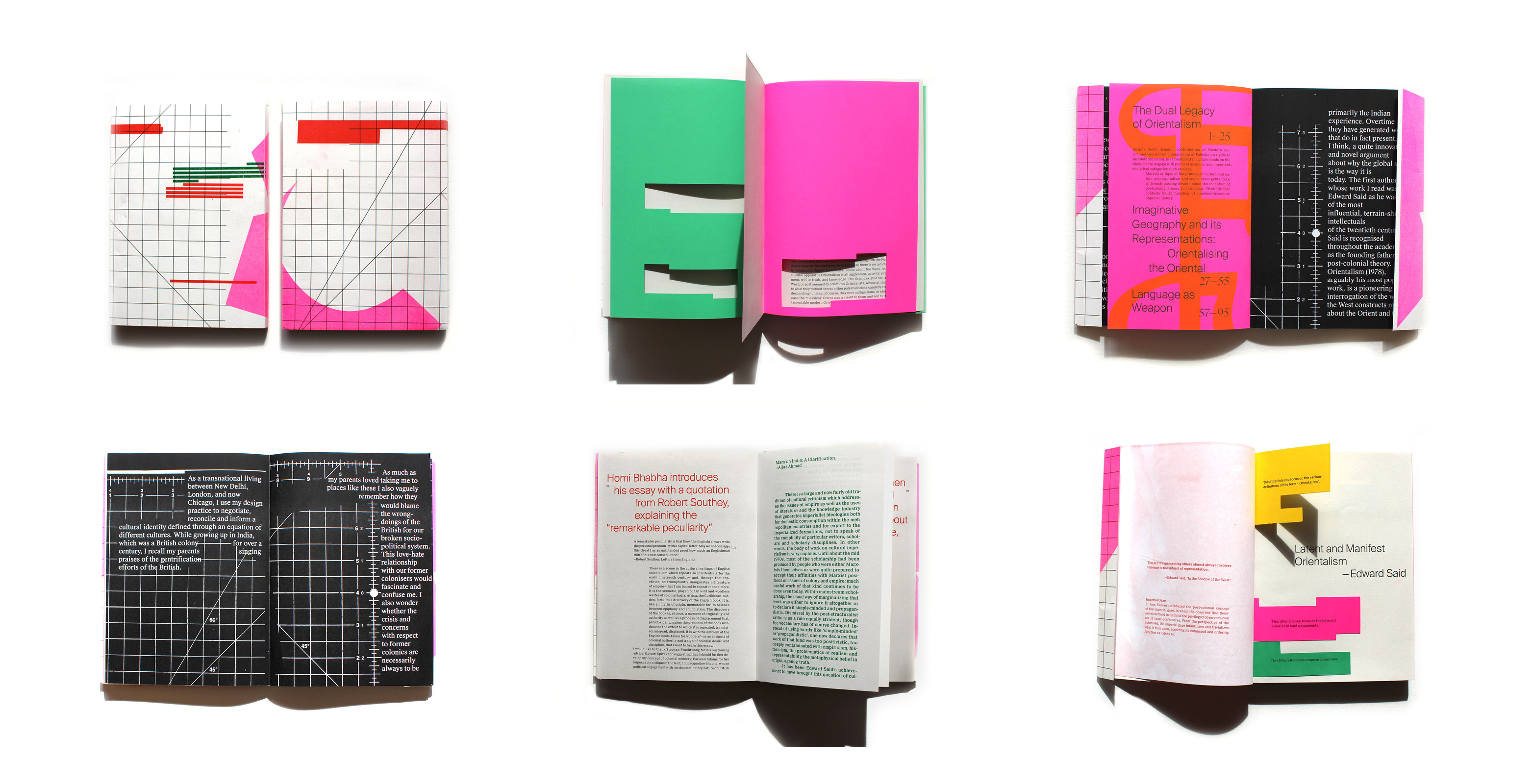

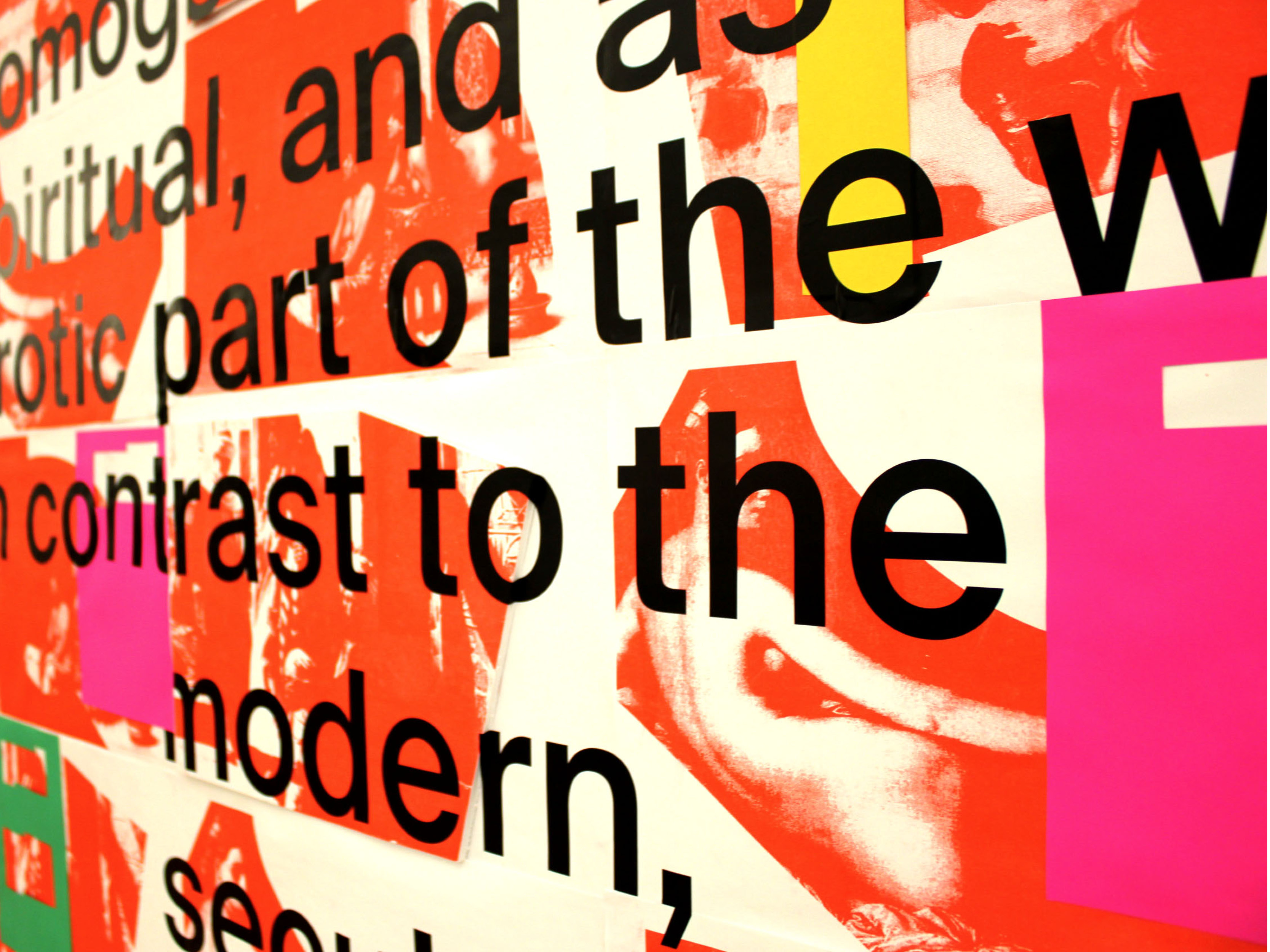

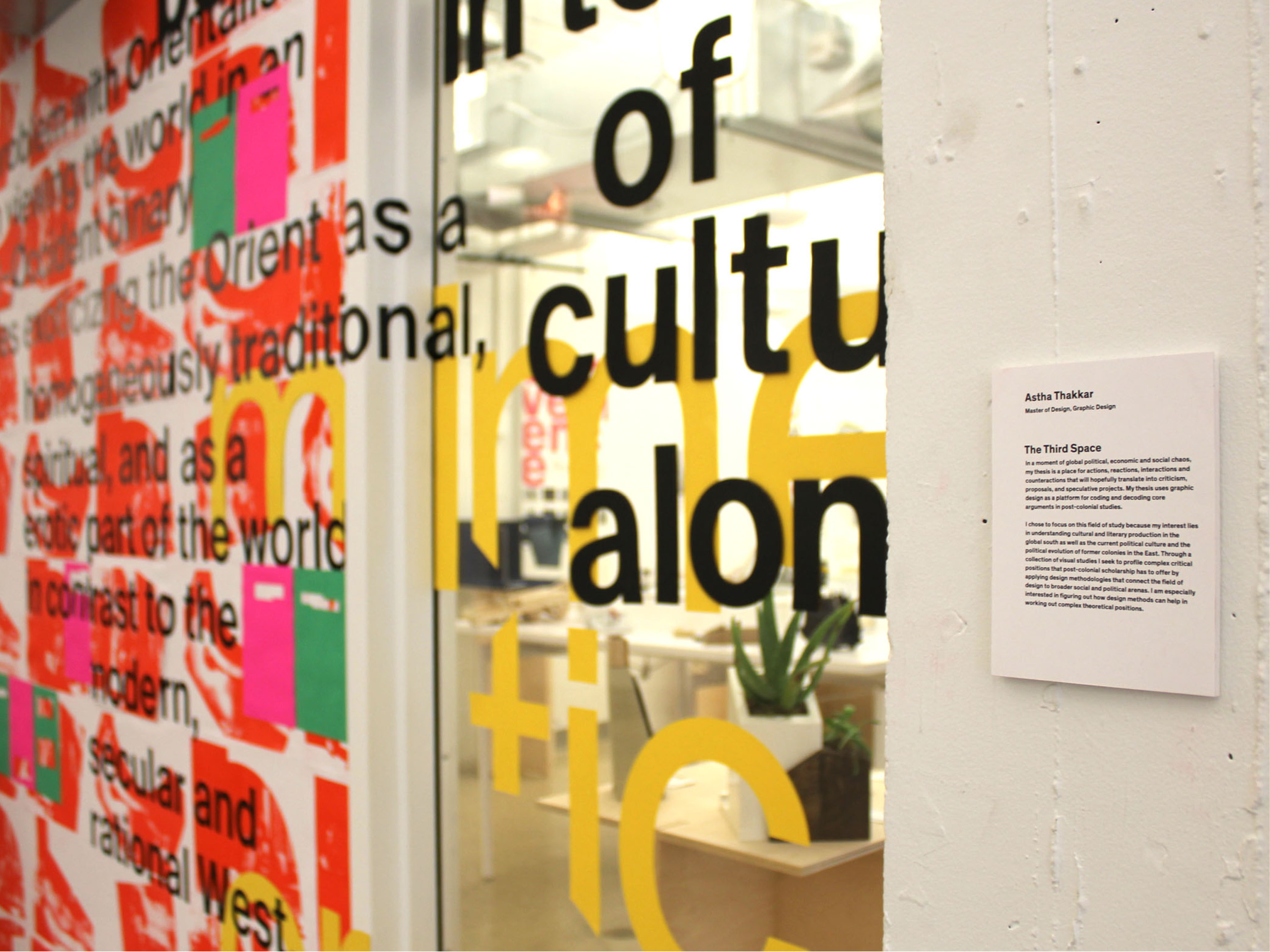
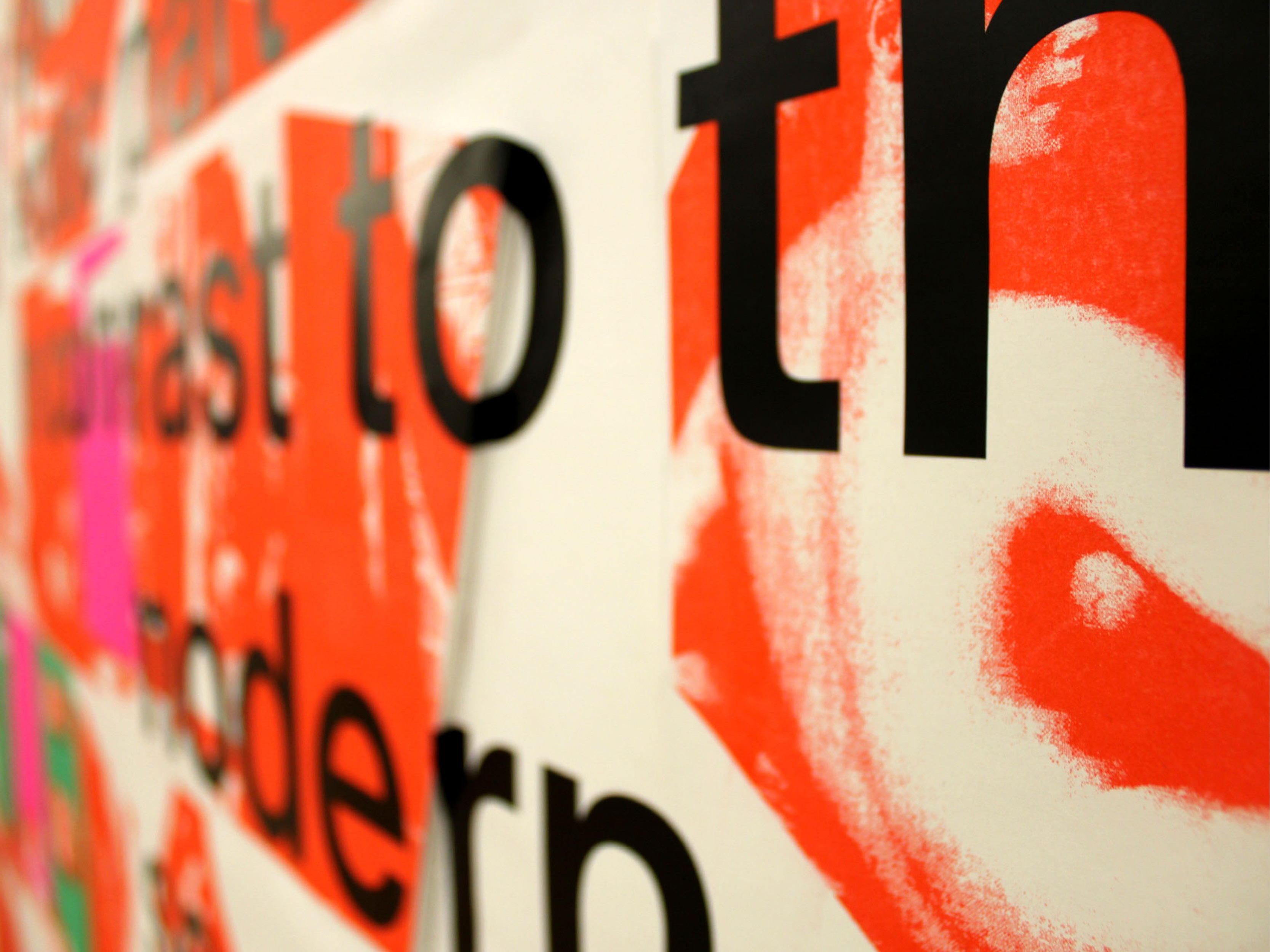
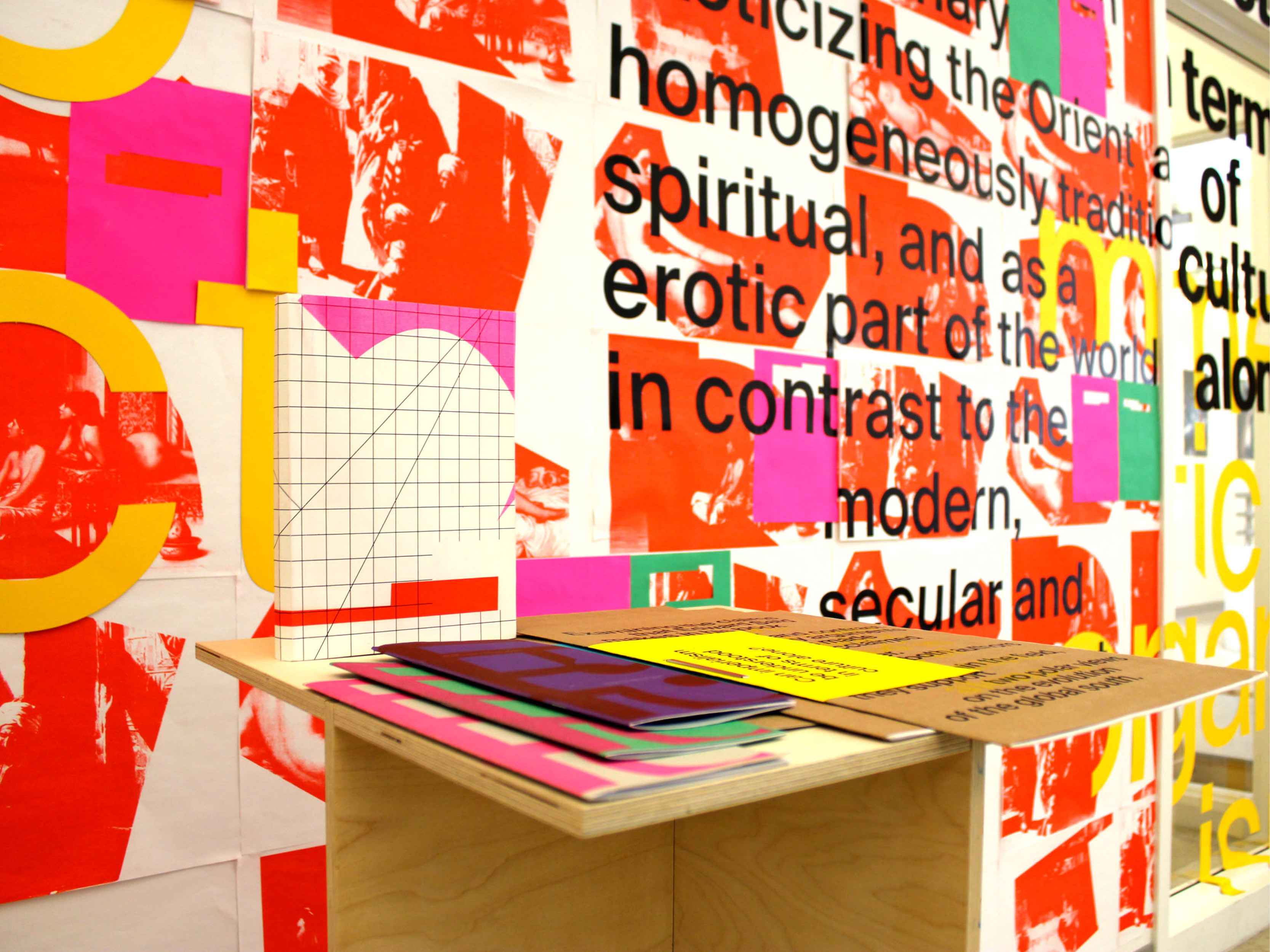

My interest lies in understanding cultural and literary production in the global south as well as both the current political culture and the political evolution of former colonies in the East. My key approach was to apply design methodologies in understanding what post-colonial scholarship has to say about the culture, social framework, and political and historical evolution of the global south. Through a collection of visual studies I seek to profile complex critical positions by applying experimental design methodologies that connect the field of design to broader social and political arenas. I am especially interested in figuring out how design methods can help in working out complex theoretical positions.
‘Understanding core arguments in post-colonial studies through
design methodologies’

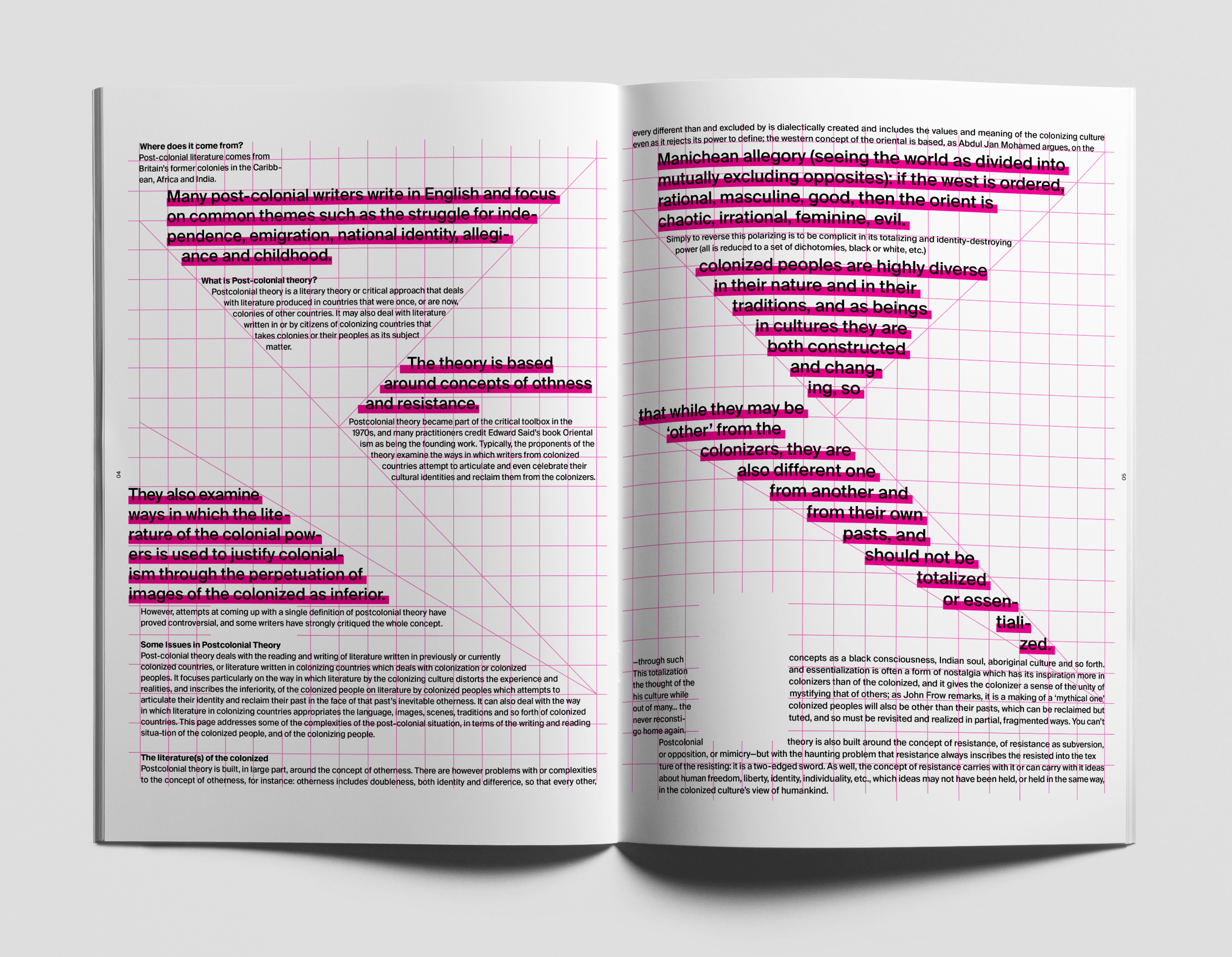

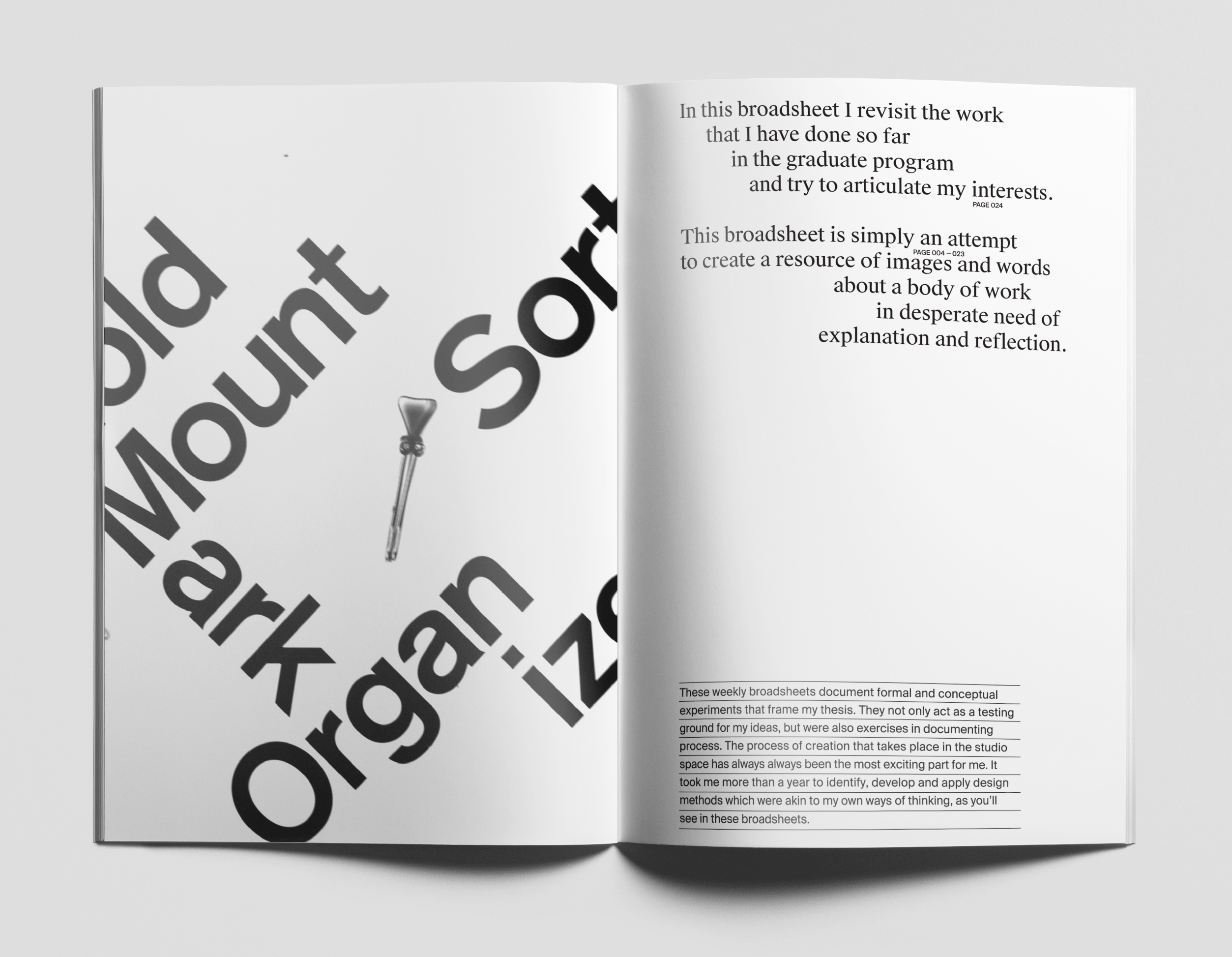
‘The West was rational, materialistic, civilized, masculine, scientific, modern, individualistic, active, dynamic—and conceived of as Self. The East was irrational, spiritual, savage, feminine, exotic, mysterious, traditional, communal, passive, unchanging—Other.’
-Edward Said, Orientalism
The research project examines the claims that Edward Said, an influential, terrain-shifting post-colonial scholar, makes in his book ‘Orientalism’. I compare and contrast his key arguments to the claims made by another acclaimed twenty-first century scholar, Vivek Chibber. While both authors incorporate theories within the field, they support two polar views on the evolution of the global south. By examining these two scholars and their varying viewpoints, I attempt to bring to light the strengths and weaknesses of each perspective. Such conflicts of opinions are ripe for a design intervention. I tried to foreground some key arguments through typographic operations and by devising methods to reveal ideological flaws in a historically specific and troubled text. In a moment of global political, economic and social chaos, my thesis is a place for actions, reactions, interactions and counteractions that will hopefully translate into criticism, proposals, and speculative projects. I am interested in looking at how these complex notions of difference and identity are relevant today. I see myself as a literary curator—I collect and sequence texts and images, both digital and analog, to reveal, connect, and construct narratives, resulting in shifting meanings and significances.

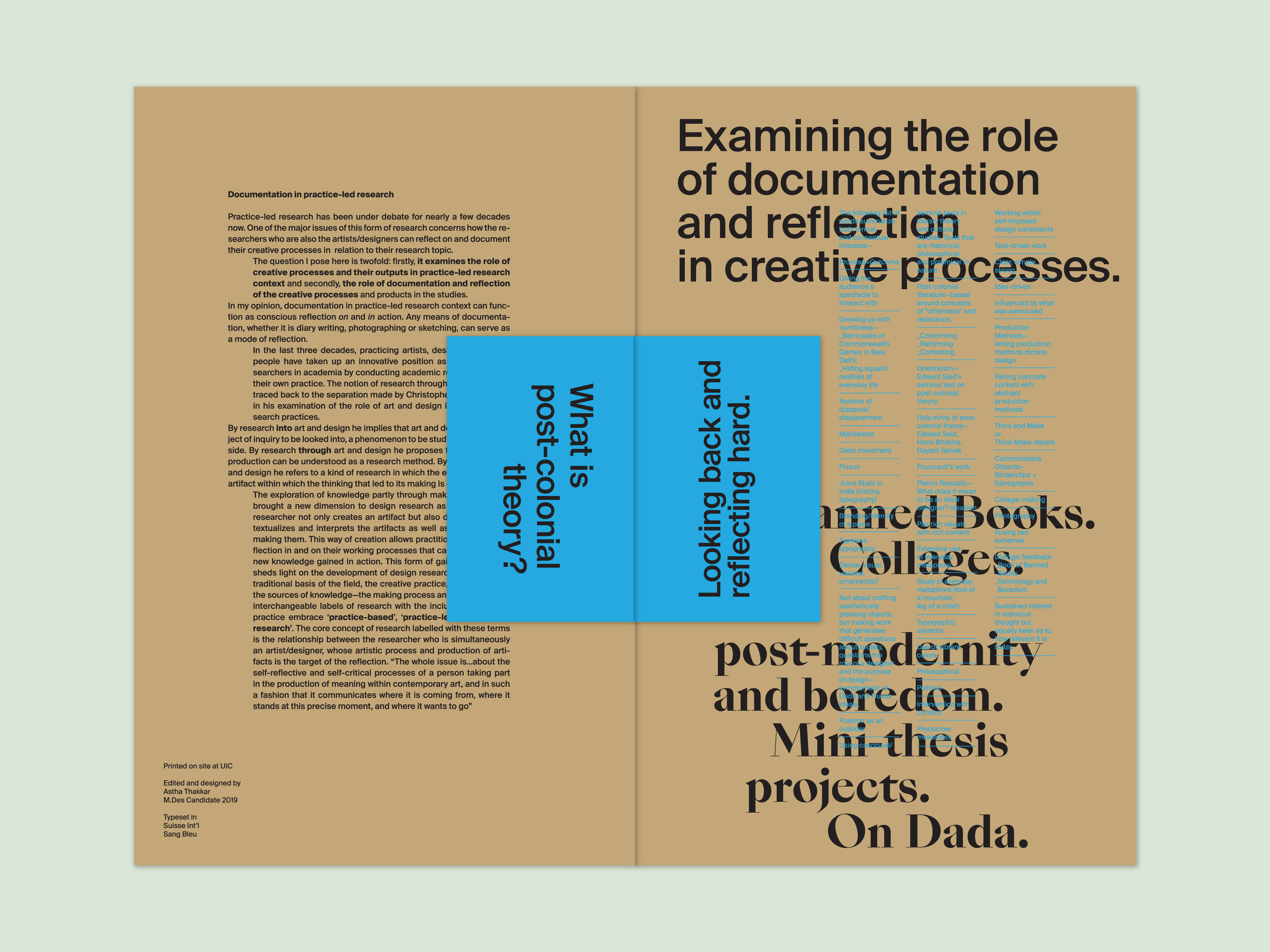
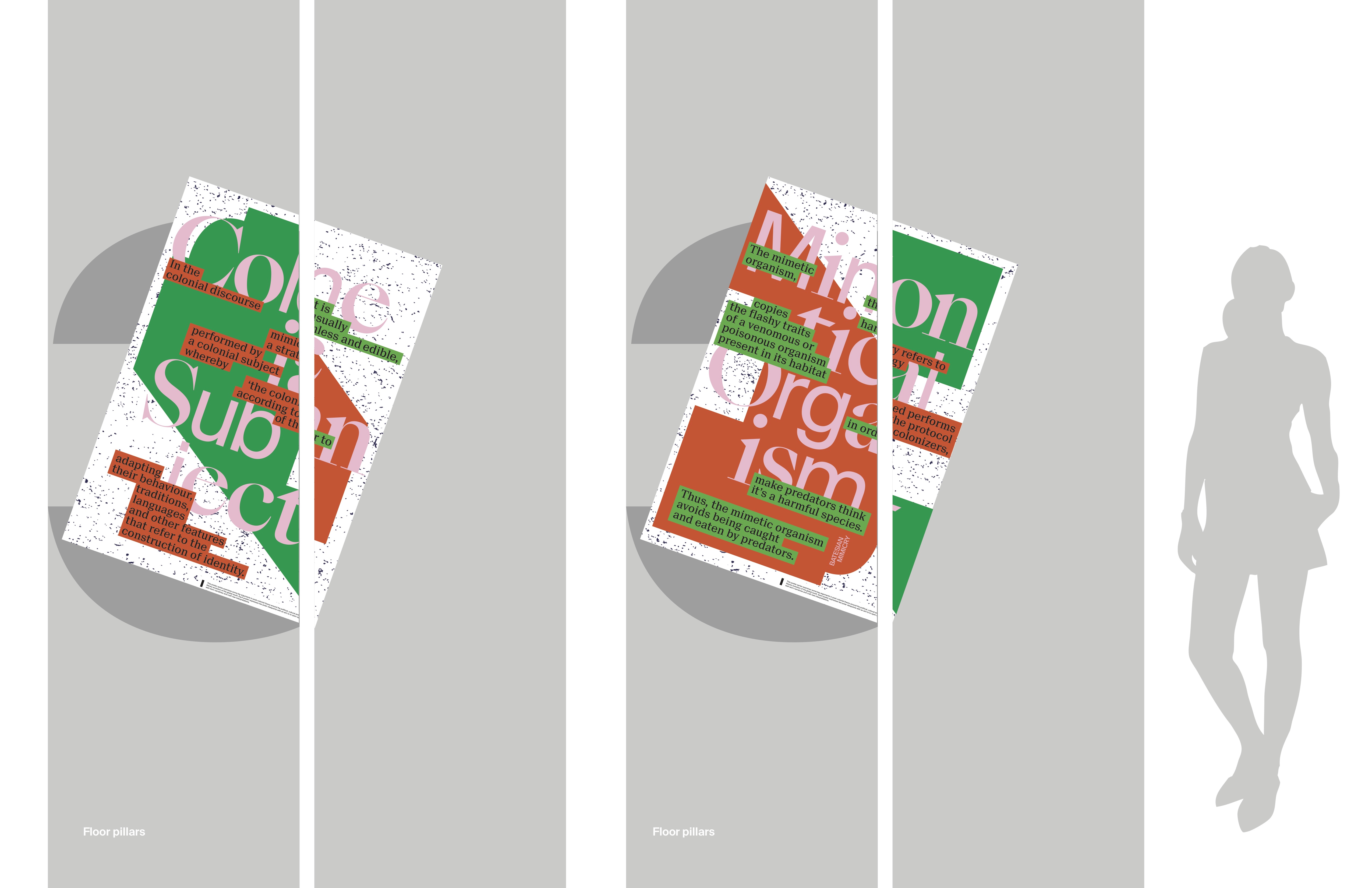


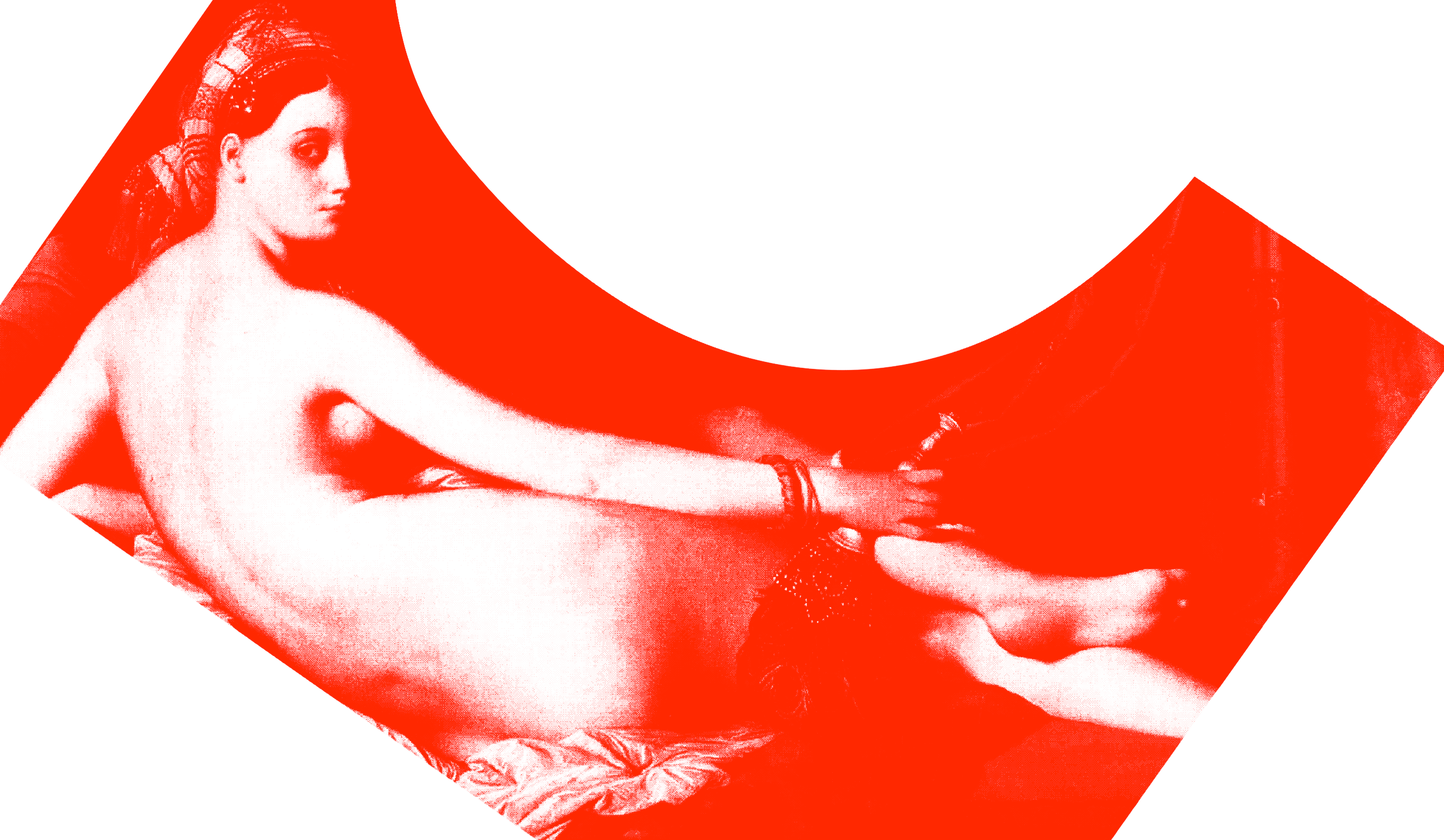
Edward Said
My initial approach was to examine the work of historians who, over the past 10 to 15 years, have contributed significantly to the development of post-colonial scholarship. The first author I turned to was Edward Said—widely regarded as one of the most influential and transformative intellectuals of the twentieth century. Said is often considered a founding figure in post-colonial theory, and his work continues to shape critical discourse across disciplines.

His landmark book Orientalism (1978) stands as a seminal critique of how the West has historically constructed and mythologized the
"Orient." In this groundbreaking study, Said exposes how these cultural representations are not neutral or benign, but serve as tools for producing knowledge that justifies and sustains imperial domination.

Vivek Chibber
In order to examine postcolonial studies through a more empirical lens, the next step was to identify a central cluster of arguments that could be considered representative of the field—arguments that might constitute a coherent theory or research programme.
While Edward Said’s work remains foundational, many contemporary scholars have raised important critiques of his approach to nineteenth-century imperial history. Thinkers such as Bashir Abu Manneh and Lauren M.E. Goodlad compellingly challenge Said’s tendency to portray colonising societies as monolithic and uniformly complicit, overlooking the complexity and variation in imperial involvement. As both scholars argue, one of the key limitations of Orientalism is its neglect of class as a structuring force within empire.
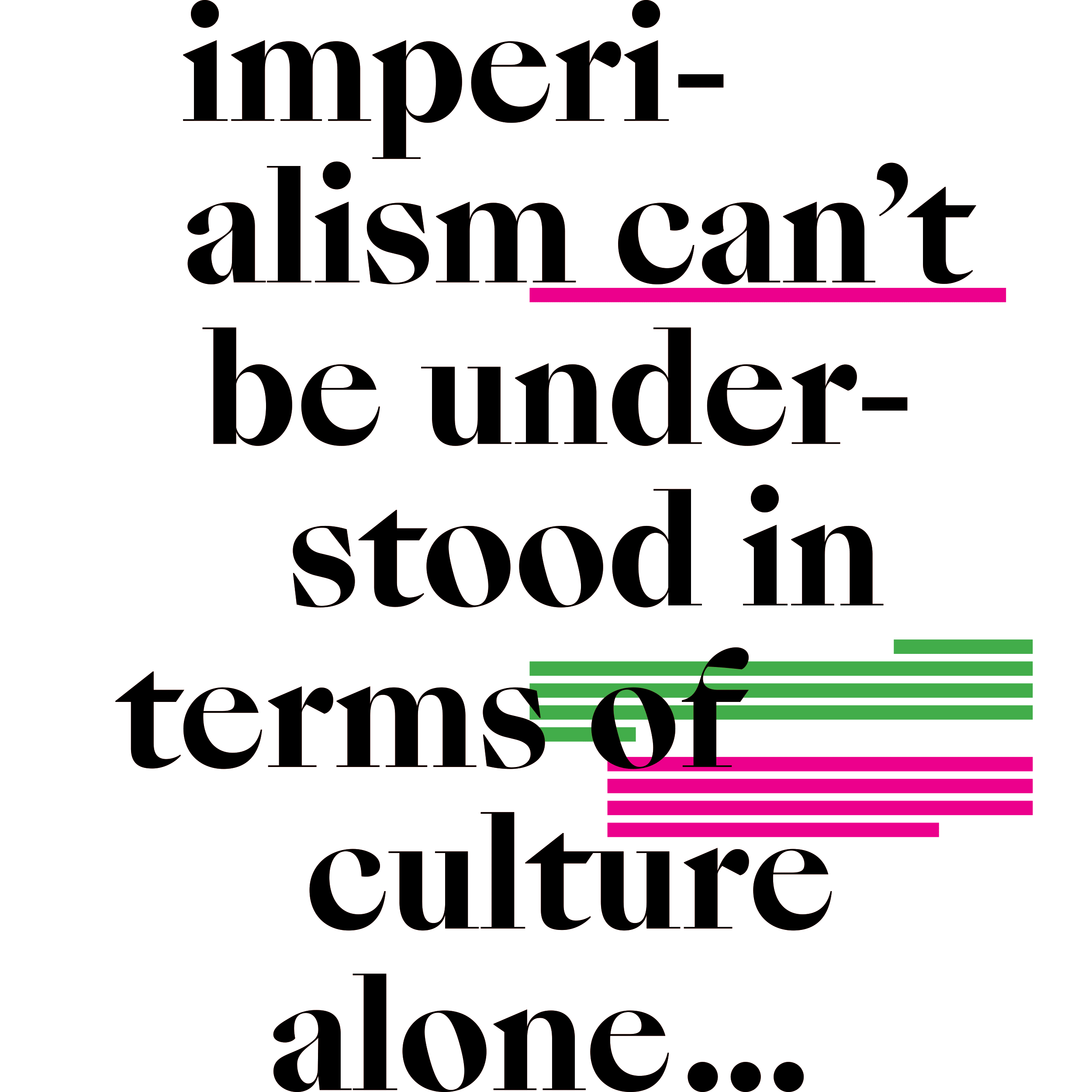
In response to these critiques, I sought to foreground such omissions in Orientalism through typographic strategies and interpretive methods designed to expose the text’s ideological tensions and historical blind spots.
